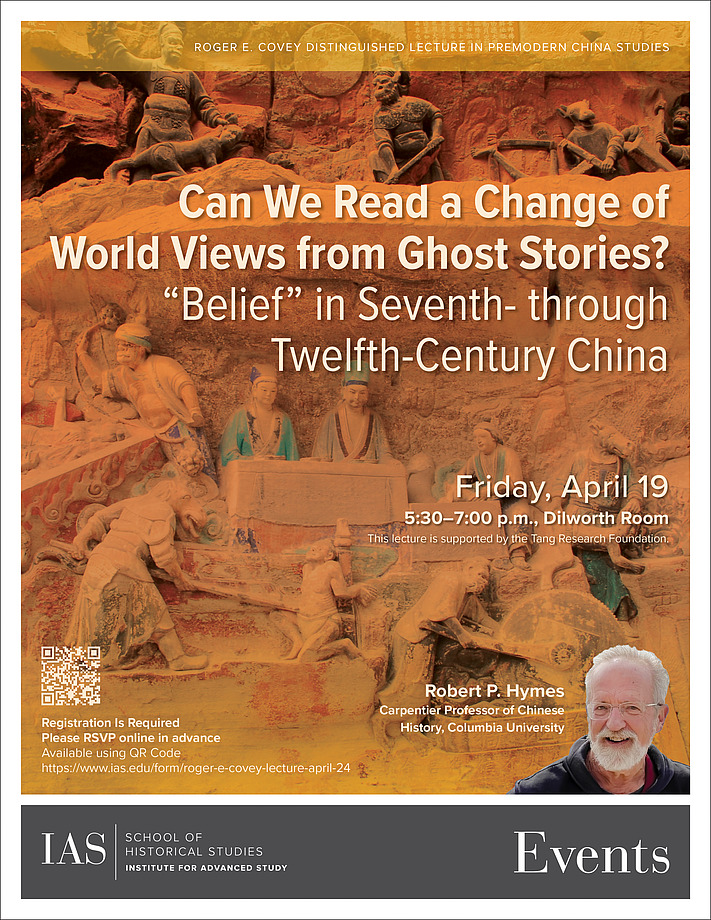Roger E. Covey Distinguished Lecture with Robert P. Hymes

Roger E. Covey Distinguished Lecture on Premodern China
Can We Read a Change of World Views from Ghost Stories? "Belief" in Seventh- through Twelfth-Century China
Robert P. Hymes
Carpentier Professor of Chinese History, Columbia University
Two massive premodern Chinese collections of short narratives, from the tenth century and twelfth century respectively, preserve many hundreds of anecdotes about human encounters with ghosts and gods, drawn from the seventh through tenth centuries in the first collection and from the eleventh and twelfth centuries in the second. I call them “anecdotes” instead of “stories” or “tales” because their tellers told them as true: they did not present them as creative fictions, but as records of strange things that had really happened. In both collections, the anecdotes sometimes reflected the efforts of religious propagandists or proselytizers to spread a specific message, but in other cases were simply drawn from––and in either case routinely entered into––the day-to-day and year-to-year practice of occult gossip, a standard elite recreation of these periods. They are the sorts of mysterious, scary, edifying, or entertaining anecdotes that aristocrats, educated gentlemen, monks, priests, and perhaps ordinary people would tell each other at their leisure over wine or tea in pavilions, teashops, taverns, and temples to elicit wonder, reverence, puzzlement, or sometimes laughter from their conversation partners. As such, they have been much used by social and cultural historians to learn things about religion, about the accoutrements of daily life, about social networking, and even about the economy in China in these periods. The present talk focuses on a different issue: the uses of the word “belief” and allied notions in the two collections. I will argue that a stark difference in the valence of belief between the earlier and later collection suggests a surprisingly large change in underlying basic assumptions about how reliable knowledge is acquired and how the words of other people are to be heard and treated––a change perhaps meaningful enough to be called one of “world views.” The talk will present the evidence for the change and propose possible explanations lying in the place of religion, the nature of social elites, and the rise of political partisanship across the two periods. There will also be good ghost tales.
Friday, April 19, 2024
Dilworth Room
5:00 p.m. | Wine & Cheese Reception
5:30 p.m. | Talk
This lecture is supported by the Tang Research Foundation.
Please note:
This registration is for the in-person event only. A video of the lecture will be available after the event.
To register to receive the post-event recording via email click HERE.